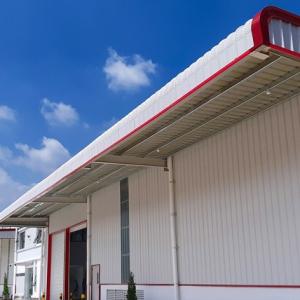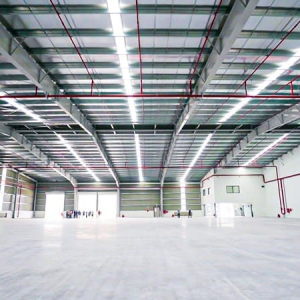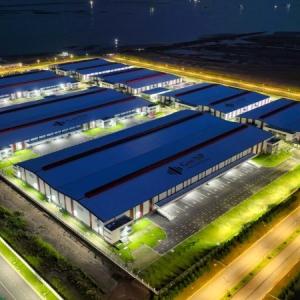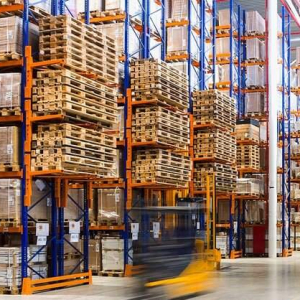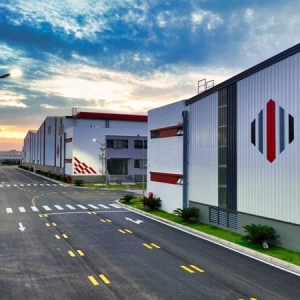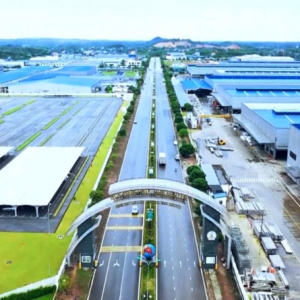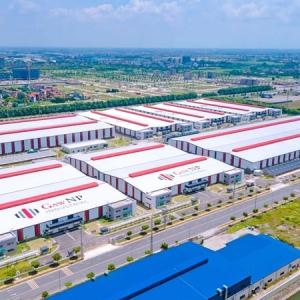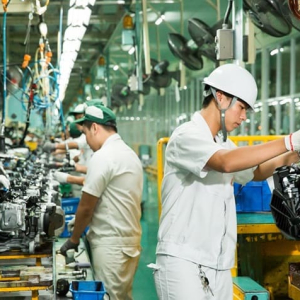6 criteria for building factories for export processing enterprises (EPE)
August 27, 2024 07:45 AM
Building factories for EPE requires preparation and adherence to important criteria to ensure efficiency and sustainability. In this article, Gaw NP Industrial will suggest 6 essential criteria for built to suit in Vietnam projects, from location selection, legal documentation preparation, to design and factory management, helping enterprises optimize the production process and comply with legal […]
Building factories for EPE requires preparation and adherence to important criteria to ensure efficiency and sustainability. In this article, Gaw NP Industrial will suggest 6 essential criteria for built to suit in Vietnam projects, from location selection, legal documentation preparation, to design and factory management, helping enterprises optimize the production process and comply with legal regulations.
1. Export Processing Enterprise (EPE)
1.1 Definition of Export Processing Enterprise (EPE)
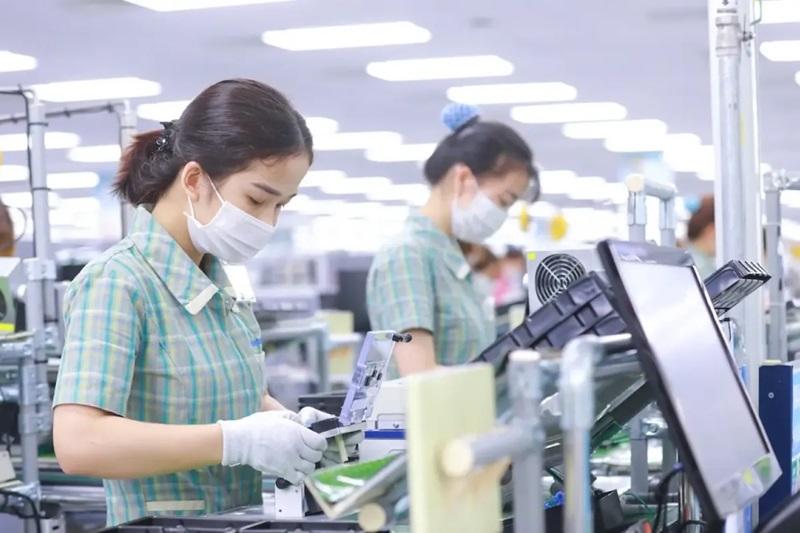
Export Processing Enterprise (EPE) is a business specializing in the production of goods for export
Export Processing Enterprise (EPE) is a business specializing in the production of goods for export. These enterprises operate under specific management regulations. They often enjoy tariff incentives and other policies aimed at promoting export activities.
Export Processing Enterprises play an important role in the economy by creating jobs, boosting exports, and attracting foreign investment. However, establishing and operating an EPE also presents numerous challenges, such as requirements for infrastructure, product quality management, and compliance with legal regulations.
1.2 Preferential policies for export processing enterprises

Export Processing Enterprises (EPEs) receive numerous tax incentives
Value added tax incentives
According to Clause 20, Article 4 of Circular 219/2013/TT-BTC, EPEs are exempt from value-added tax (VAT).
Corporate income tax incentives
According to Clause 4, Article 19 of Circular 78/2014/TT-BTC, from January 1, 2016, EPEs investing in socio-economically disadvantaged areas (as per Appendix II of Decree 118/2014/ND-CP) enjoy a corporate income tax rate of 17%.
Additionally, EPEs are exempt from corporate income tax for the first 2 years and receive a 50% reduction in tax payable in the next 4 years for income from new investment projects, according to Clause 4, Article 19 of Circular 78/2014/TT-BTC and Article 6 of Circular 151/2014/TT-BTC.
Import tax incentives
EPEs are exempt from import tax on imported goods to offer fixed assets, as well as raw materials, supplies, and components imported for production, according to the provisions of the law on export and import taxes.
1.3 Conditions for establishing an Export Processing Enterprise
According to Clause 2, Article 26 of Decree 35/2022/ND-CP, to establish an Export Processing Enterprise, investors must meet the following conditions:
- The export processing zone, EPE enterprise, or industrial zones for export processing enterprises must be separated from the outside area by a fence, with gates and doors.
- Ensure conditions for inspection and supervision by customs authorities and relevant functional agencies as per regulations on non-tariff zones, export tax, and import tax.
- To enjoy investment incentives and tax policies, the EPE enterprise must be confirmed by the competent customs authority to meet all conditions for customs inspection and supervision before official operations.
2. Characteristics of export processing enterprises
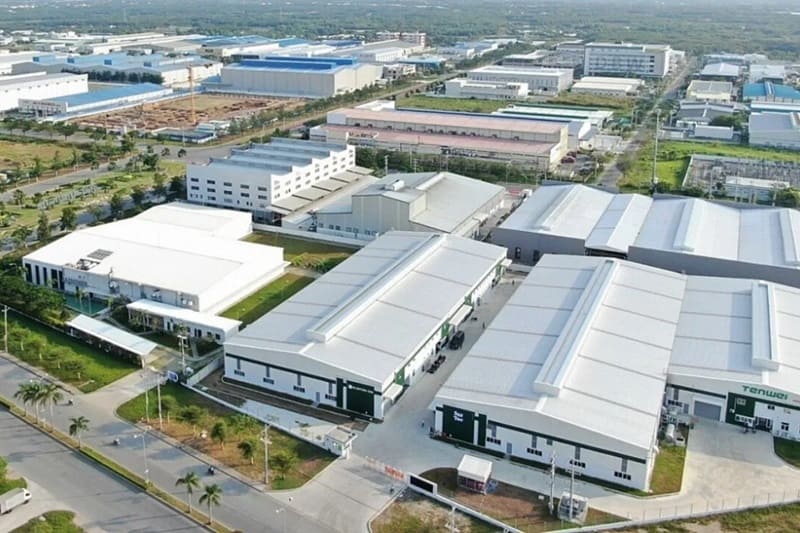
Export Processing Enterprises (EPEs) have distinctive characteristics
EPEs have distinctive characteristics and must comply with numerous stringent regulations and laws. Below are some main characteristics of EPEs:
2.1. Relevant regulations and laws
EPEs must comply with Vietnamese laws and international regulations on export and production. These regulations include investment laws, tax laws, and regulations on environmental protection and labor safety. Compliance with these regulations not only ensures legal operations but also helps enterprises avoid legal risks and optimize costs.
2.2. Characteristics of production and management for export processing enterprises
The production activities of EPEs are typically closed-loop, with strict production and management processes. This ensures high product quality and minimizes production errors. EPE businesses often apply international quality management standards such as ISO, HACCP, and other standards depending on the specific industry.
2.3. Environmental and labor safety requirements
EPE businesses must comply with strict requirements on environmental protection and labor safety. These requirements include waste treatment, pollution control, and ensuring worker safety. Compliance with these regulations not only helps protect the environment but also makes a safe and healthy working environment for employees.
3. 6 considerations for building factories for export processing enterprises
3.1. Location of the factory for Export Processing Enterprises
Choosing a suitable location: The location for building the factory must be convenient for the transportation of raw materials and products. The factory should be near major transportation routes, seaports, or airports to save on shipping costs and delivery time.
Criteria for transportation and infrastructure: The factory location must have an efficient transportation system, including roads, railways, and other means of transport. Infrastructure such as electricity, water, and waste treatment systems must also meet production needs.
Impact of location on costs and production efficiency: A favorable location will reduce transportation costs for raw materials and products, thus increasing production efficiency. Additionally, location near raw material sources and consumer markets also helps reduce risks and costs.
3.2. Documents required for building a factory for Export Processing Enterprises
Construction permit and related procedures: The enterprise needs a construction permit issued by the competent authority. The permit application process includes submitting the dossier, conducting field inspections, and approving the construction plan.
Legal and necessary documents: The application for construction permit includes design drawings, a land use right certificate, and documents related to fire prevention and environmental protection. These documents must be prepared thoroughly and accurately to avoid rejection or the need for additional submissions later.
Permit application process and processing time: The process of applying for a construction permit usually takes from a few weeks to several months, depending on the complexity of the project and the requirements of the regulatory authority. Enterprises need to plan their timelines carefully to avoid delays during construction progress.
3.3. Areas in factories for export processing enterprises
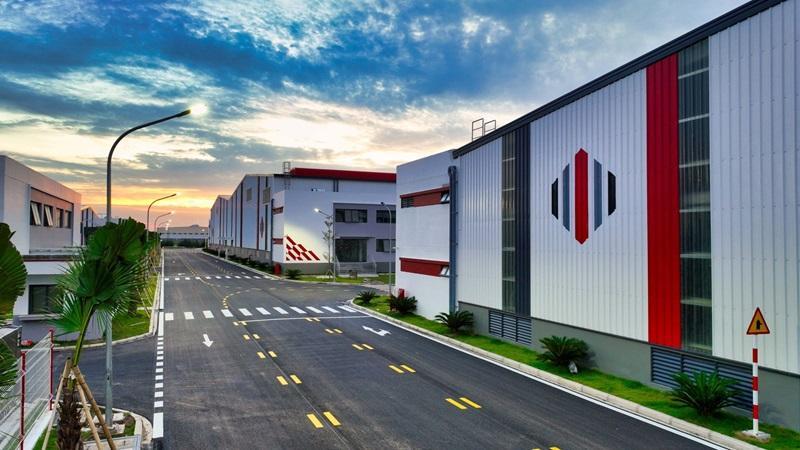
Areas in factories for export processing enterprises
Main production area: This is where production, assembly, and processing of products take place. This area must be designed efficiently to optimize the production process, ensure labor safety, and comply with environmental regulations.
Storage and transportation area: This includes raw material warehouses, finished product warehouses, and import-export areas. This area needs to be conveniently arranged for storing and transporting goods, ensuring that products are well-preserved and easily transported.
Administrative and management area: This is the workspace for management, accounting, human resources, and other support departments. This area should be designed comfortably and conveniently to provide the best working conditions for employees.
3.4. Scale of factory for export processing enterprises
Define scale and area: The scale of the factory must be determined based on current production needs and future growth forecasts. The factory area should be large enough to meet production and storage requirements, while also being optimized to avoid wasting space.
Analyze demand and forecast growth: Enterprises need to carefully analyze production needs, forecast growth, and market trends to determine a reasonable factory scale. This helps businesses remain flexible in expanding or contracting production scale when necessary.
Optimize space and layout of the factory: The factory space needs to be scientifically arranged to optimize the production process, minimize travel time. Utilizing technological and automation solutions also helps optimize space and increase production efficiency.
3.5. Reporting construction information to the management board of industrial zones
Regulations on reporting and supervising construction: Enterprises must report the construction status of the factory to the industrial management under regulations. This reporting helps the management agency monitor progress and ensure the project complies with legal regulations.
Report template and required indicators: The report template typically includes information about construction, problems and solutions. Enterprises need to prepare complete and accurate reports to avoid requests for additional information or re-inspections.
Reporting process and timeline: The reporting process usually involves preparing the report, submitting it to the Management Board, and receiving feedback. The reporting timeline is often specified in the construction permit or related legal documents. Enterprises must adhere to the reporting timeline to ensure the project does not fall behind schedule.
3.6. Regulations and laws regarding the purchasing and selling of materials for the factory.
Regulations on the quality and origin of materials: Enterprises need to choose reputable material suppliers, ensuring that materials meet technical and safety standards. Regulations on the quality and origin of materials are often stipulated in national or international standards.
Procurement process and contract: The procurement process must be transparent, stringent, and comply with legal regulations. The procurement contract should be clearly drafted, detailing the quality, quantity, price, and delivery time.
Conditions for storing and using construction materials: Construction materials must be stored properly to ensure their quality and lifespan. Storage conditions include controlling temperature, humidity, and other environmental factors. The use of materials must also comply with safety and environmental protection regulations.
4. Gaw NP Industrial – the leading factory construction developer based on requirements
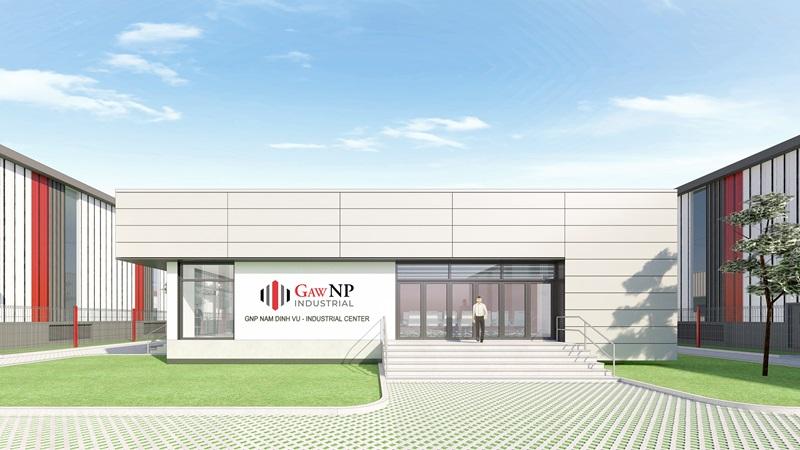
Gaw NP Industrial is a joint venture between Gaw Capital Partners and NP Capital
Gaw NP Industrial is a joint venture between Gaw Capital Partners and NP Capital. Gaw Capital Partners is a leading Asian investment fund with a total asset management value of USD 35.2 billion, and NP Capital is one of the most experienced real estate developers in Vietnam. Aiming to become Vietnam’s premier industrial real estate developer, Gaw NP Industrial proudly offers a diverse range of products and services, making every investment experience easier and more seamless than ever.
Gaw NP Industrial provides a variety of services such as factory leasing, ready-built warehouses, logistics centers, and especially built-to-suit factories. We understand that each business has unique requirements; therefore, our built-to-suit factory services always meet all technical and business criteria, ensuring maximum value for our customers.
Advantages of choosing Gaw NP Industrial:
- Strategic location: Gaw NP Industrial’s projects are located in strategic positions, easily connected to major transportation routes, saving time and transportation costs.
- Top quality: Committed to providing top-quality products and services, ensuring all technical and safety standards.
- Global connection: Gaw NP Industrial has a global network, making it easy for customers to connect with international partners and markets.
- Local expertise: With in-depth knowledge of the local market, Gaw NP Industrial is always ready to advise and support customers most effectively.
Outstanding products of Gaw NP Industrial
GNP Nam Dinh Vu:
- Location: Hai Phong, near major seaports.
- Scale: 16.9 ha.
- Rental area: Over 101,000m².
- Key features: Warehouse equipped with hydraulic dock levelers, modern fire protection system, 24/7 security.
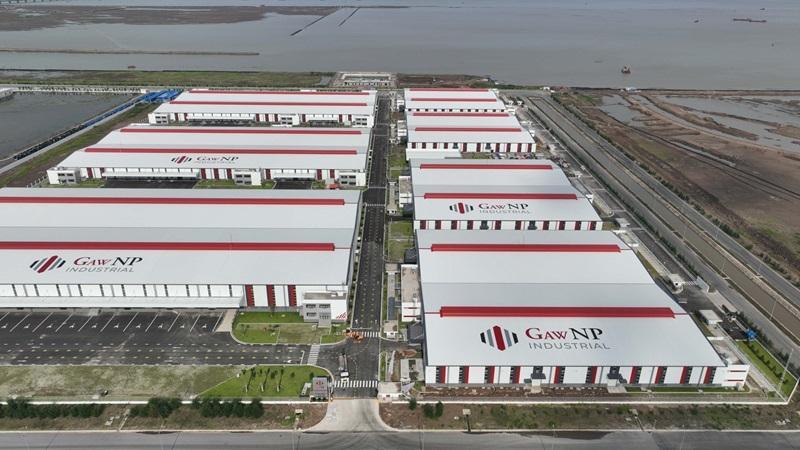
GNP Nam Dinh Vu
GNP Dong Van 3:
- Location: Ha Nam, connected to major national highways.
- Scale: 16 ha.
- Rental area: Over 100,000m².
- Key features: Column-free factories, complete utility infrastructure, EDGE green building certification.
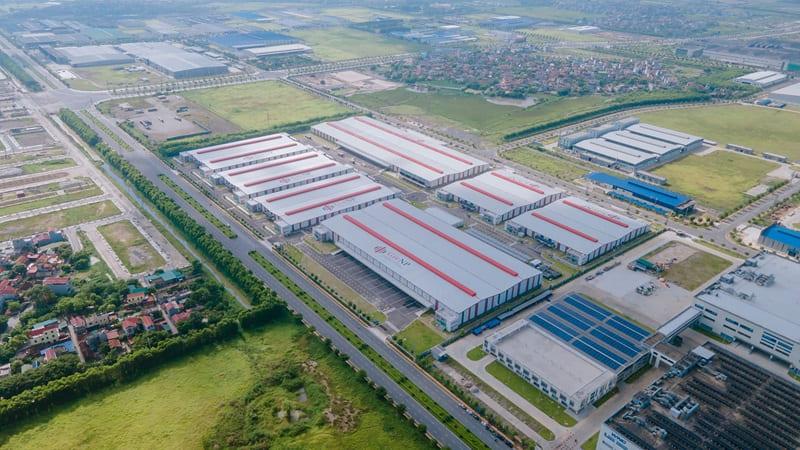
GNP Dong Van 3
GNP Yen Binh 1 & GNP Yen Binh 2:
- Location: Thai Nguyen, near Hanoi and major transportation routes.
- Scale: 29.5 ha.
- Rental area: Over 188,000m².
- Key features: Column-free design optimizes production space, modern infrastructure, and 24/7 security.
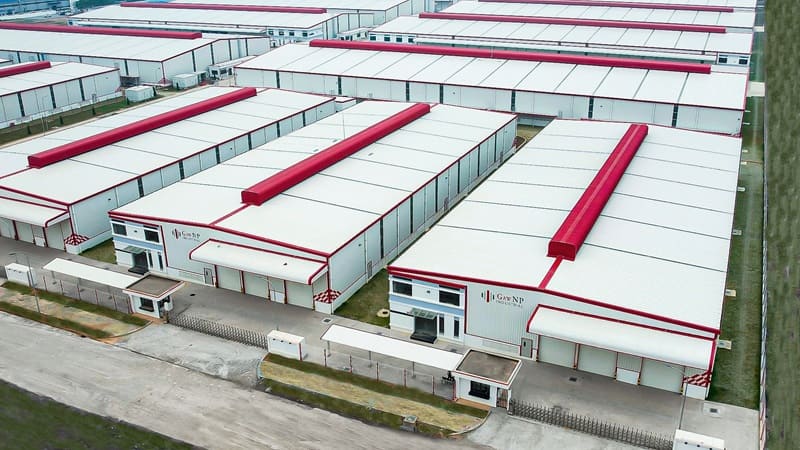
GNP Yen Binh 1 & GNP Yen Binh 2
With a commitment to providing high-quality products and excellent services, Gaw NP Industrial is always the top choice for businesses seeking factory solutions in Vietnam.
Conclusion
Compliance with 6 criteria of building factories for EPE enterprises not only optimizes production operations but also ensures long-term safety and efficiency. Focusing on these factors will make a better working environment, contributing to improving productivity and competitiveness of businesses in the market..
For more information about Gaw NP Industrial‘s ready-built factory services, customers can contact the hotline at +84 789 75 77 88 for specific consultations.
See more:
4 advantages for export processing enterprises (EPE) when selecting a ready-built factory
Key differences between EPE (Export Processing Enterprise) and Non-EPE
Warehouse for lease in Vietnam | Warehouse for rent in Vietnam | Factory for lease in Vietnam | Factory for rent in Vietnam
